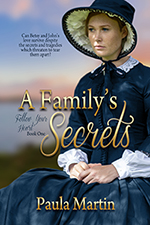 |
| Find this and all my other BWL books on my author page |
In these
weird days where thoughts of Covid lie heavily upon us, and technology changes
by the hour let alone by the day, we spare little thought about the struggles
and lives of the ones who came before us—those heroic souls who forged a life
for themselves and others in the early years of settlement. Of course, I am
concentrating on this fledgling colony of Australia. By the 1860s most major
towns had been settled. Being an avid researcher I am now deep in this time
period. Men set out in search of gold as well as land to call their own. It
seems the 1860s was dominated by the struggles of small land holders (called
selectors), along with the miners. These settlers were intent on persuading the
government to gain control of the land from the squatters who had occupied
large areas of Crown land either under a licence or lease. They believed it was
time to make this Crown land available for farming. These selectors faced much
resistance from the squatters who had found ways to keep the most fertile land
for themselves.
Thus, this
high demand for land caught the eye of those interested in exploration of the
more regional and remote parts of the continent. They set out to find rich
pastures for farming along with clean and fast-flowing water. Better routes
between colonies needed to be established, and to better serve this an Overland
Telegraph Line was essential. Explorers like Charles Stuart, Robert O’Hara Burke
and William John Wills led expeditions to discover arable land. It was these
intrepid explorers and others who mapped routes between the far-flung
settlements. To cross this vast continent for the first time was a dangerous
quest and proved to be fatal for some.
Burke & Wills were the first Europeans to cross Australia from south to north. This expedition is probably one known by most Australians, perhaps because of its sad ending. Both were inexperienced—Burke being a police investigator and Wills a surveyor and meteorologist. Burke was chosen to lead the expedition across the inhospitable interior so that Victoria could win a reward posted by the government, who wanted to build a telegraph line from Adelaide to the northern coast of Australia. Their party left Melbourne on August 20, 1860, with horses, Indian camels and 3 drivers. They followed the Darling River and then headed north to the Gulf of Carpentaria. The expedition included John King, Charles Gray, and William Brahe. Brahe remained at a base camp at Cooper’s Creek waiting for more men, who were delayed by months. Quarrels between the men over bad timing and spring rains marred the trip. They reached the mouth of the Flinders River (at the Gulf of Carpentaria) on February 9, 1861. Low on supplies they turned around. Gray soon died from fatigue. Burke, Wills, and King were very weak when they returned to the camp at Cooper’s Creek on April 21, 1861. Heading home hours behind Brahe, a group of Aborigines gave them food and water. They later were forced to kill and eat their last two camels. After more than a month of traveling since leaving Cooper’s Creek, they had wandered back to it. They missed Brahe, who had returned to the camp to check for them. Burke, Wills, and King again wandered off, but Wills became weak, so they left him with some of the food. Soon after that, Burke died (June 20, 1861). King returned for Wills but found him dead. On September 18, 1861, King was rescued by Alfred Howitt and his party who had searched for the lost expedition. Charles Sturt led an expedition down the Murrabiggee and Murray Rivers and his exploration is considered one of the greatest in Australian history. The expedition disclosed extensive areas of land for future development in New South Wales and South Australia
He later led an expedition north from Adelaide to the edge of the Simpson Desert. Although he discovered no fertile land and was eventually driven back by heat and scurvy, his party was the first to penetrate the centre of the continent.
New industries such as pearling began in Western Australia and a centre in Broome was established. The cities in all colonies grew and the arts flourished with the publication of books and poems about Australia by native-born Australians; artists born overseas and the native-born drew the Australian landscape and colonial personalities. Albert Namatjira was one of Australia’s greatest artists. Blending traditional use of colour with Western-style landscapes brought him fame and citizenship in a time when Aboriginal people had few rights. His early works transmitted the same spiritual connection with the land as more traditional Aboriginal art, and he represented his love of trees through lovingly rendered portrait-like paintings. Tragically he was just 57 when he died.
 |
| Find excerpts and reviews of all my books on my web page |

























